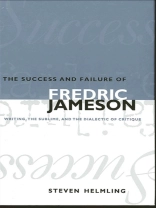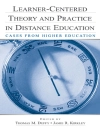A critical overview of the work of Fredric Jameson, with an emphasis on his notoriously difficult writing style.
This is the first book to provide a critical overview of the work and career, as a whole, of the Marxist culture-critic Fredric Jameson, foremost among American intellectuals and a vanguard figure in the ‘theory movement’ of the past three decades. Steven Helmling identifies major themes and traces both continuity and change in Jameson’s engagement with the challenges presented by continental theory from the 1950s to the present. Instead of approaching Jameson’s work by circumventing his notoriously difficult writing style, as many have chosen to do, Helmling takes at face value Jameson’s insistence that the success and failure of critique are conditioned on how it is written. Jameson insists on a ‘dialectical prose’ that not merely analyzes but enacts or performs the contradictions of its subjects, resulting in an agitating, dramatic, and compelling style that questions the very success or failure of critique itself. Style is thus regarded both as a salient feature of the writing, and as a problem for critical practice in general. Besides illuminating an oeuvre that’s far from fully understood, the book makes a timely contribution to the current, ‘What was theory?’ discussion.
Table of Content
ACKNOWLEDGMENTS
CHAPTER ONE. FREDRIC JAMESON
The Success and Failure of Critique
CHAPTER TWO. THE DIALECTIC OF THE SCRIPTIBLE
Barthes and Adorno
CHAPTER THREE. HERMENEUTIC AND/OR CRITIQUE
CHAPTER FOUR. ‘DELIBERATE FAILURE’
Wyndham Lewis
CHAPTER FIVE. ‘INEVITABLE FAILURE’
The Political Unconscious
CHAPTER SIX. FAILURE AND THE SUBLIME
Postmodernism
CHAPTER SEVEN. JAMESON POST-POSTMODERNISM
The Success and Failure of Theory
CODA. BEYOND SUCCESS AND FAILURE
Brecht and Method
WORKS CITED
NOTES
INDEX
About the author
Steven Helmling is Professor of English at the University of Delaware, and is the author of The Esoteric Comedies of Carlyle, Newman, and Yeats.












